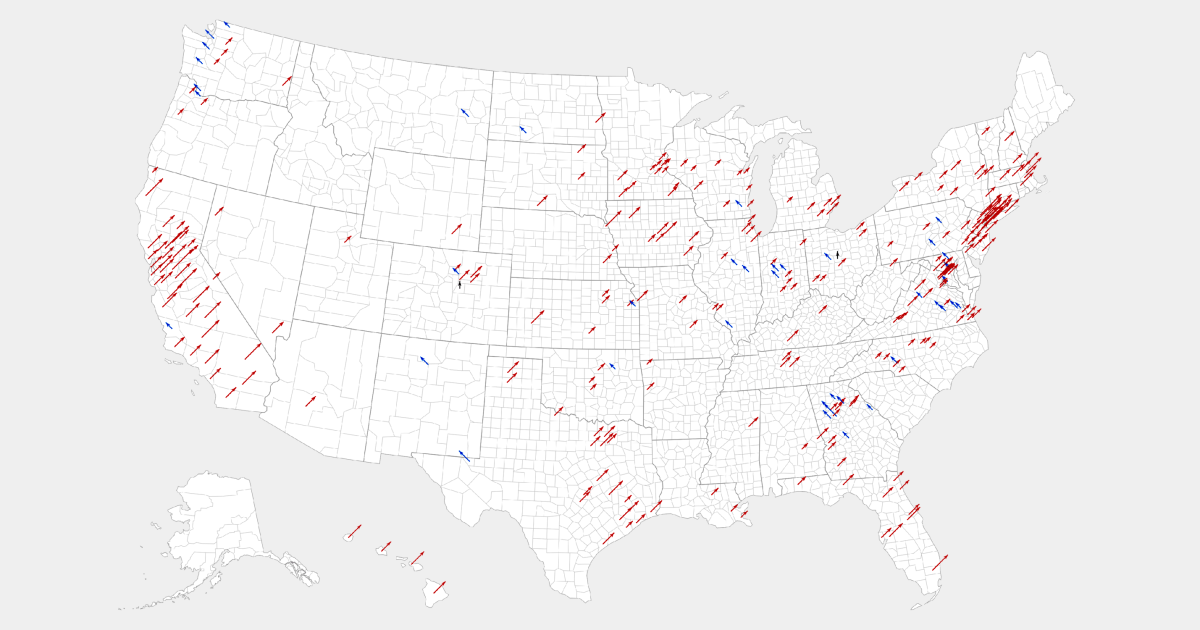NBC News looked at several demographic groups and which counties have the largest percentage of a particular group living there, as of the latest Census Bureau survey, which publishes estimates for 2018 to 2022 — specifically, the roughly 300 counties in the top 10% of each group. For example, Hinds County in Mississippi has one of the highest concentrations of Black people in the country, while Alameda County, California, with Asian Americans making up 32% of its population, has one of the highest concentrations of that racial group.
Experts point to turnout and dissatisfaction with the economy as the driving forces behind the results. However, shifts in voting patterns among certain demographics — while they shouldn’t be considered the focal point — are also visible, said Ken Kollman, a political science professor at the University of Michigan.
“The main story is the relatively low levels of turnout for Harris in key Democratic places compared to Biden in 2020,” Kollman said. “It’s a turnout story.”
Kollman pointed out exit polls showing a shift among Hispanic men, and added that Black men may have either voted more for Trump or not turned out for Harris.
Asian American voters in both the Northeast and the West shifted toward Trump, with experts suggesting that the economy was a priority for the electorate.
In California, Merced County — with one of the highest Asian American populations in the country — went for Trump, despite its voters throwing their collective weight behind Hillary Clinton in 2016 and Biden in 2020.
A major driver of Merced’s 17-point shift rightward was a smaller vote total for Harris, who received 28% fewer votes than Biden did in 2020. Meanwhile Trump improved slightly on his 2020 performance.
Riverside, another California county where Asian Americans have strong representation, also flipped for the GOP in a photo-finish race decided by a few thousand votes.
However, the math in Riverside looked different from in Merced. Both candidates grew their vote totals compared to the previous election cycle. But while Harris’ vote count grew 21%, it was no match for Trump’s nearly 50% improvement.
When it came to education, Trump improved his margin in counties with significant populations of both high school diploma-holders and advanced degree recipients more than the national median.
However, the driving forces behind each tended to diverge. Across counties where high school graduates were strongly represented, Trump’s vote totals held steady while Harris underperformed, losing a larger share of Biden’s 2020 coalition than any other educational category.
But in counties with the largest share of advanced degree holders, Trump actually gained votes while Harris shed them.

Leave a Reply